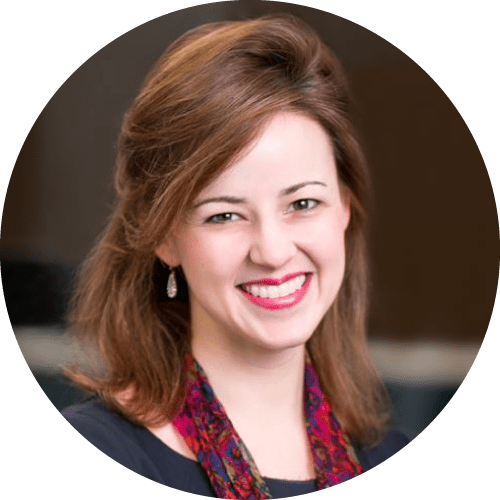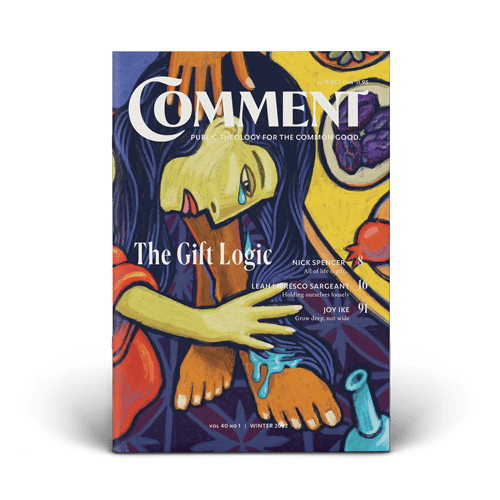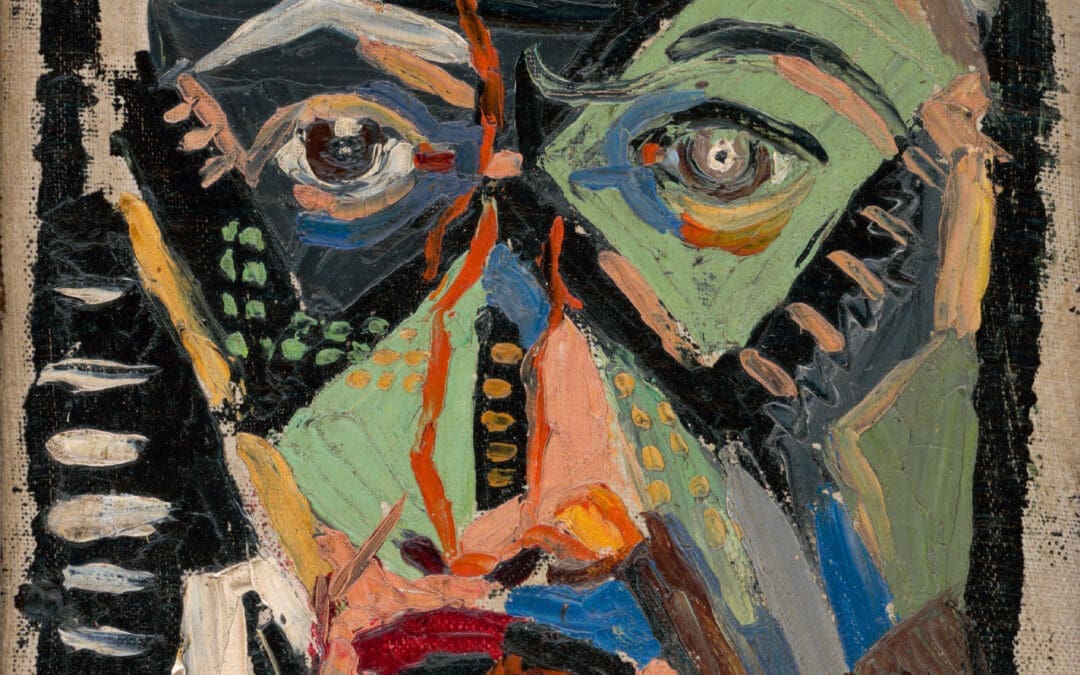A YEAR-END LETTER FROM ANNE SNYDER
Merry Christmas from Comment

Dear readers,
A friend recently commented that 2021 felt like “a lost year.” So much burdened our workloads and the news cycle, and yet we still seemed drunk on the drama of 2020, staggering in a kind of stupor that swayed between the now and not yet (a tension that often felt more practically maddening than theologically ennobling). Days flowed into one another, blurring our memories and grasp of time.
As the latest variant of COVID-19 casts an all-too-familiar pall on our celebration of Christmas and the horizon beyond, I have found myself craving a new permanence in the growth of virtues I had naively thought could just be borrowed and returned. I wake up wondering what the path is to a deeper maturity so that I can navigate this protracted season with strength. What are those friendships, those spiritual disciplines, those books, and those self-denials that need to return to the centre of life such that patience, resilience, a creative joy, and an openness to hearing God become habitual, their resources not confined to one moment of triage, but rather thousands?
My journalistic work has often lingered at the sites of post-apocalypse, those communities shaped by a clear line of Before and After as fires, floods, deportations, and other traumas have defined a new reality and erased what came before. What is almost always present in the collective struggle to rebuild is a long-term recovery group—a motley crew of those directly affected by the disaster, with a few expert outsiders transplanted to lend ballast and comparative perspective. These long-termers meet regularly, gradually forming a new irrigation system of trust and mutual awareness as they flow in and out of problem-solving discussions at once meta and micro. The full scope of what they’re trying to tackle is overwhelming. They have to re-organize constantly into task forces that serve new needs and evolved goals. Hope rarely peeks out clearly. The work is not glamorous.
But trust built among a small group of the willing and compassionate becomes its own treasure, and in the places that can boast the most compelling progress, it is this long-term recovery group that becomes itself the blueprint for the community it is seeking to save.
Comment has taken inspiration from this pattern, especially in these wearying times. I am grateful to be able to say that ours was not a lost year. If 2020 was defined by responsiveness and innovation, 2021 was a year of growing into what we’d created. We remade our look in print and on the web. We expanded our core group of advisors. We published a book in collaboration with Plough called Breaking Ground: Charting Our Future in a Pandemic Year—and hosted a remarkable retreat at Laity Lodge for thirty institutional leaders desiring to build a new field of Christian humanism. We began a public partnership with the Trinity Forum, and seeded the ground for others to grow next year.
In all this our bread and butter of imaginative, hope-fuelled writing continued. If you’re like me, the week between Christmas and New Year’s Day is an invitation to read slowly. Here were some of my favourite Comment essays:
Shortly on the backs of January 6, April Lawson wrote an unusually helpful piece about how to build trust across our political divide, pointing not just to the surprising vehicle of conflict substantively framed, but herself demonstrating an inside-out knowledge of the moral psychology of “Reds” and “Blues” such that that this essay continues to be one of our most widely appreciated contributions to the larger conversation around how to depolarize. Tim Keller’s “The Fading of Forgiveness” offered a profoundly Christian diagnosis of the fear, pride, and impatience that have made grace a lost good in our public culture, and David Bailey crafted a candlestick to be lit in this same dark with a toolkit for those organizations that seek to be the reconciling communities they exist to champion.
Comment’s hungriest readers tend to be those local community shepherds and respected professionals looked to for leadership when times get crazy. We published a trio of “ten commandments” for three different sectors, attempting to layer some humane and moral muscle into today’s worlds of higher ed, tech, and health care. As physicians and nurses continue to be front and centre in our ongoing pandemic, and as broader questions of transhumanism reframe bioethical considerations, three medical residents have written a twenty-first-century framework that serves as a worthy update of the Hippocratic Oath.
One of the most beautiful essays I’ve ever had the privilege of editing was “Mortality and Natality in the Pandemic” by Jennifer Banks. She studies Hannah Arendt and her repeated return to “the shocked wonder at the miracle of Being,” a wonder that was “the fertile state from which new beginnings could germinate, even when situations seemed hopeless.” It’s a gorgeous antidote to the times in which we find ourselves, inspiring Comment to invest afresh in the conditions that this “fertile state” requires.
We’ve just launched a new column with Greg Thompson called The Welcome Table, created to explore the practice of hospitality as it has surprised some of our society’s most profound moral fractures. Starting in January, we will be helping Greg grow a pool of writers, chefs, and historians who will be excavating the gift of the table as it has served as an agent of reckoning, return, and, in the most humbling yet beautiful of cases, the beginnings of a reconciled life.
As the joy of Christmas dawns, we ask you to join us in pursuing this reconciled life—with God, with one another, with our public authorities, with the past. Reconciliation is a daily work, often a messy work, certainly a long-term-recovery work. It is inherently communal, patient, uncynical. But we are in it for the long haul, pairing deep sight with deep hope, hospitality with honesty, original ideas with embodied practice. Consider renewing your Comment subscription and give the gift of one to another. Order a copy of Breaking Ground, a rich anthology of faith seeking understanding in these pandemic times. Consider supporting the magazine and the broader learning community we are building, and check back in through our weekly newsletter and the voices of redemptive innovators featured on The Whole Person Revolution podcast.
Merry Christmas! May you be surprised and replenished by the joy of welcoming our Saviour once more into heart, home, and hope.

Anne
P.S. Subscribe now to get our upcoming issue on the gift logic! Writers like Nick Spencer and Leah Libresco Sargeant ask: Is a gift economy possible, or is it merely the product of naivety and idealism? How might a gift mindset transform our relationships—to our possessions, to each other, and to God?

